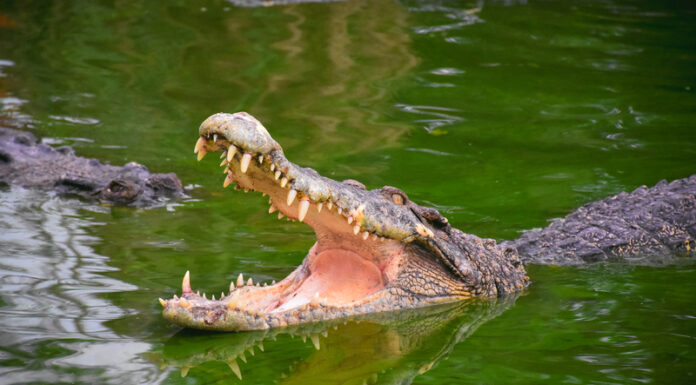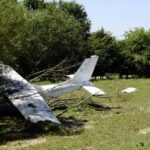A 37-year-old mother of three was killed by a saltwater crocodile while fishing in the Gobari River near Bhitarkanika National Park in Odisha, India, on Friday, September 19, 2025. Laxmi Dalei of Suniti village was dragged into the water by the reptile at approximately 10:30 a.m. local time, and her mutilated remains were recovered the following day.
The attack occurred while Dalei was catching fish in the river within the Mahakalapada forest range. Eyewitnesses reported that villagers who saw the attack raised an alarm and attempted to save her, but their efforts proved unsuccessful.
Forest Range Officer Santanu Kumar Dalei described the incident to the Press Trust of India, explaining that “The crocodile emerged from nowhere and lunged at her.” Before Dalei could react, the reptile dragged her into the water despite her efforts to escape.
Local forest guards, fire personnel, and nearby residents immediately launched a search operation to locate the victim. The search continued through Friday night and into Saturday morning. On September 20, search teams recovered Dalei’s half-eaten and mutilated body on the riverbank.
Bhitarkanika National Park spans a vast saltwater swamp in Odisha, covering approximately 404 miles across the Brahmani River and Baitarani River deltas. The area is home to 1,826 saltwater crocodiles, according to the most recent reptile census, making it one of India’s largest crocodile populations.
Range Officer Dalei indicated to local media that crocodiles do not pose a risk to public safety if people avoid entering the waters, but safety cannot be guaranteed for those who venture into crocodile-inhabited water bodies. The forest department has implemented various safety measures in recent years to prevent human-crocodile conflicts.
The department erected barricades around 120 river ghats surrounding Bhitarkanika in Aul, Mahakalapada, Rajkanika, and Pattamundai blocks to prevent crocodiles from attacking humans. Officials also conduct awareness campaigns by distributing posters and pamphlets, as well as using loudspeakers, to warn riverside villagers against venturing into the water.
The forest department advises locals to bathe in rivers only within designated barricaded areas, as the water bodies serve as natural habitats for saltwater crocodiles. Despite these precautions, human-crocodile conflicts continue to plague the region.
This incident represents the 13th fatal crocodile attack in two years near Bhitarkanika and the 29th fatality in the past 40 months, according to local officials. The human-crocodile conflict in villages around Bhitarkanika and nearby areas has reached concerning levels, with the estuarine crocodiles killing an average of five to six people annually.
Farmers’ leader Umesh Chandra Singh noted that crocodiles frequently invade riverside villages across rivers in Aul, Rajkanika, Pattamundai, Mahakalapada, and Rajnagar blocks of Kendrapada district, as well as Chandabali and Tihidi blocks in Bhadrak district, venturing far from the park’s designated water bodies.
The 672-square-kilometer sanctuary is home to the highest concentration of saltwater crocodiles in India. Human interference in crocodile-infested water bodies, including rivers, creeks, and nullahs, leads to unfortunate encounters in villages situated on the periphery of the sanctuary.
Residents of forest-adjacent villages point to the rising number of saltwater crocodiles as a key factor in the increase of human attacks by reptiles in villages around Bhitarkanika. The growing crocodile population has expanded their territorial range, bringing them into more frequent contact with human settlements.
Dalei is survived by three young daughters and her husband. The family depended on traditional fishing for their livelihood, a common occupation among residents of riverside communities in the region. Her death adds to the growing toll of crocodile attacks affecting families in the area.
This incident occurred just days before another fatal crocodile attack in India. On September 15, a 15-year-old girl named Shivani Kevat was killed by a crocodile while collecting water from the Parvati River in Rajasthan’s Mehatabpura village. Her body was discovered floating in the river the following day, with an autopsy confirming drowning as the cause of death.
The Odisha Forest Department continues its efforts to balance wildlife conservation with human safety, implementing protective measures while educating local communities about the dangers of entering crocodile habitats. However, the frequency of attacks demonstrates the ongoing challenge of managing human-wildlife conflicts in areas where traditional livelihoods intersect with protected wildlife territories.








